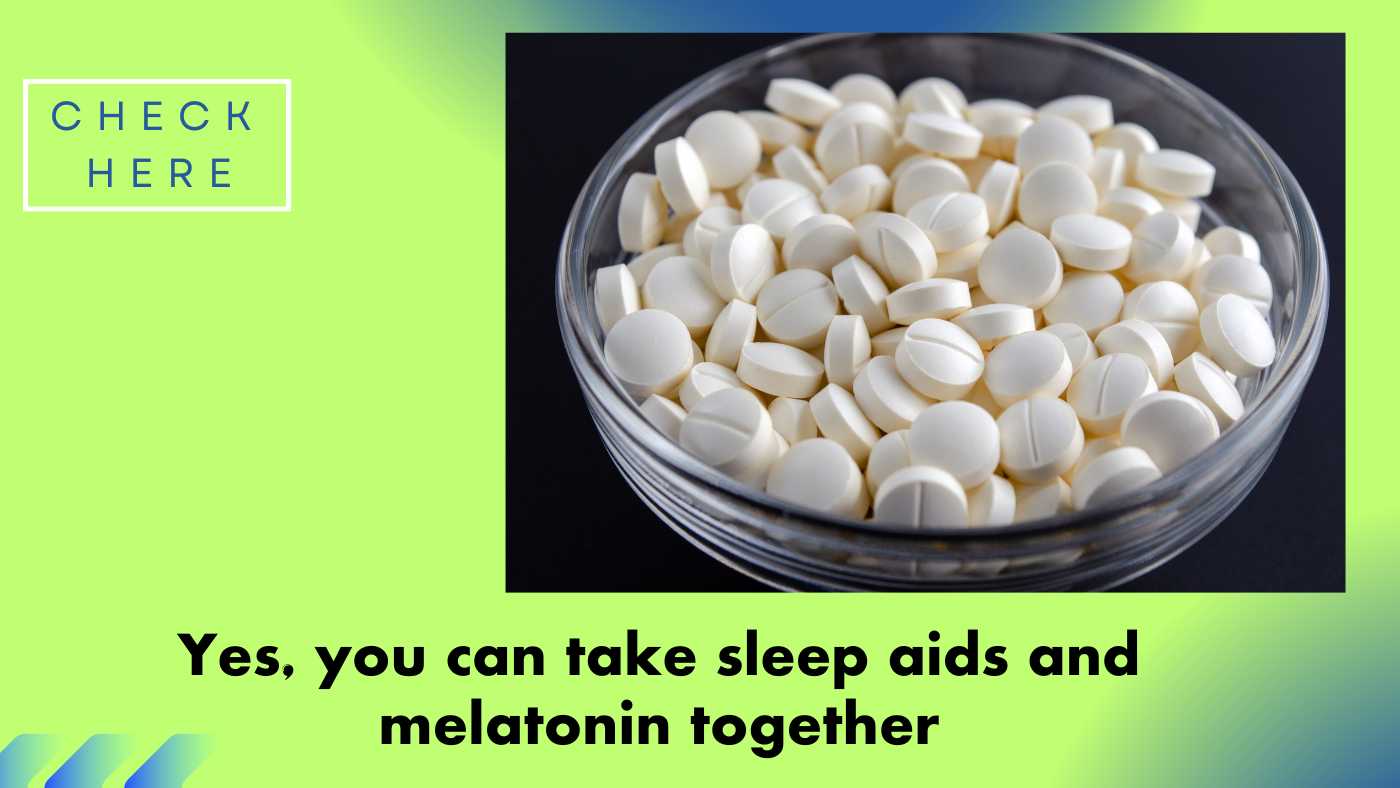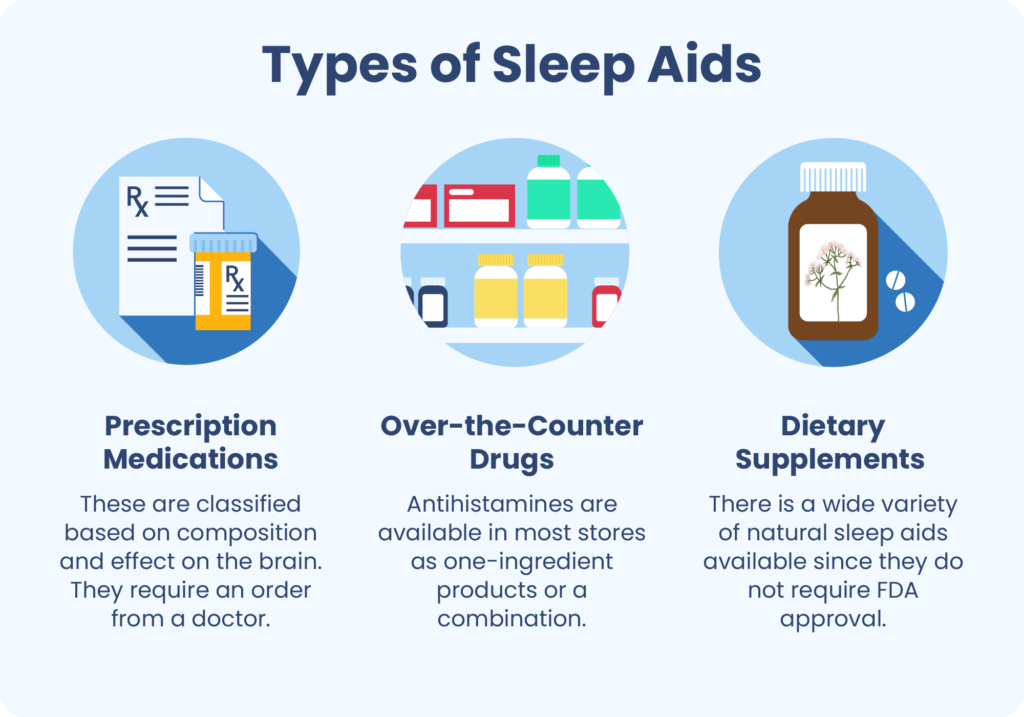Can you take sleep aid and melatonin? Yes, you can take sleep aids and melatonin together, but it is important to do so under the guidance of a healthcare professional to ensure safety and effectiveness.

Can You Take Sleep Aid and Melatonin Together? Safety Tips and Expert Advice
Sleep aids and melatonin are used to help with sleep, but they work in different ways. Sleep aids, prescription or over-the-counter medications, often contain antihistamines or other sedatives that induce sleepiness. Melatonin, on the other hand, is a natural hormone that regulates the sleep-wake cycle and is often used as a supplement to help with sleep disorders, particularly those related to circadian rhythm disturbances like jet lag.
No products found.
Combining Sleep Aids and Melatonin:
- Effectiveness: Combining melatonin with sleep aids can potentially enhance the sleep-inducing effects, especially for individuals with severe insomnia or those who have not found relief with one method alone.
- Safety: There is a risk of increased side effects, such as excessive drowsiness, confusion, or impaired coordination, especially the next day. Therefore, it is crucial to consult with a healthcare provider who can assess your individual health needs and recommend appropriate dosages.
- Interactions: Some sleep aids may interact with melatonin, altering its effectiveness or increasing the risk of adverse effects. For instance, benzodiazepines or other sedatives combined with melatonin could potentiate sedative effects.
Recommendations:
- Consultation: Talk to your doctor before combining melatonin with any sleep aid.
- Dosage: Follow the prescribed or recommended dosages strictly.
- Monitoring: Monitor for adverse effects, and report them to your healthcare provider.
Statistical Data
| Aspect | Sleep Aids | Melatonin |
|---|---|---|
| Common Usage | Treating acute insomnia, anxiety-related sleep issues | Regulating sleep-wake cycles, jet lag, circadian rhythm disorders |
| Forms Available | Pills, liquids, nasal sprays, sublingual tablets | Pills, gummies, liquids, sublingual tablets |
| Typical Dosage | Depends on the specific medication, often 25-50 mg of diphenhydramine or 10 mg of zolpidem | Usually 0.5-5 mg |
| Onset of Action | 30 minutes to 1 hour | 30 minutes to 2 hours |
| Duration of Action | 6-8 hours | 4-8 hours |
| Common Side Effects | Drowsiness, dizziness, headache, dry mouth | Headache, dizziness, daytime drowsiness |
| Potential for Dependence | High (especially with prescription sleep aids) | Low |
| FDA Approval | Many are FDA-approved for sleep disorders | Available as dietary supplements, not FDA-approved for sleep disorders but considered safe in recommended doses |

Credit: www.sleepfoundation.org
What Is Melatonin?
Can You Take Sleep Aid and Melatonin?
Melatonin is a natural hormone produced by the pineal gland in the brain. It plays a crucial role in regulating the sleep-wake cycle. When it gets dark, the body releases melatonin to help you fall asleep. Melatonin supplements can improve sleep quality, especially for insomnia or jet lag patients.
Melatonin binds to receptors in the brain and other body areas to promote sleepiness. It helps synchronize the body’s internal clock and signals time for rest. This hormone not only regulates sleep but also has other benefits. It has antioxidant properties, supports immune function, and may have a role in reducing migraine frequency and severity.
Taking melatonin supplements can help regulate sleep-wake cycles in individuals with sleep disorders or trouble sleeping. Research suggests that melatonin supplementation is generally safe in the short term. However, it’s important to consult a healthcare professional before starting any new supplement, especially if you take other sleep aids or medications.
What Are Sleep Aids?
What are Sleep Aids?
Sleep aids are medications or substances that can help individuals struggling with insomnia or sleep disorders. They are designed to promote better sleep and improve overall sleep quality. While various types of sleep aids are available, it’s important to understand how they work and be aware of their potential risks and side effects.
Several types of sleep aids are available on the market, including over-the-counter (OTC) medications, herbal supplements, and prescription drugs. OTC sleep aids often contain antihistamines, which help induce drowsiness, while herbal supplements like melatonin can regulate sleep-wake cycles. Prescription drugs such as benzodiazepines and non-benzodiazepine sedatives may be prescribed for individuals with severe insomnia.
Sleep aids function by targeting the brain’s neurotransmitters and receptors to promote sleep. They can help regulate the sleep-wake cycle, increase relaxation, and reduce anxiety or racing thoughts that interfere with sleep. While sleep aids can be effective for short-term relief, consulting a healthcare professional for proper guidance and avoiding prolonged or excessive use is essential.
The Potential Risks and Side Effects of Sleep Aids
Like any medication, sleep aids can have potential risks and side effects. Common side effects include dizziness, daytime sleepiness, and cognitive impairment. Some individuals may experience allergic reactions or develop a dependence on sleep aids, leading to withdrawal symptoms upon discontinuation. It is crucial to use sleep aids as directed, follow recommended doses, and seek medical advice if experiencing any adverse effects.
Can You Take Sleep Aid And Melatonin Together?
Combining a sleep aid with melatonin can be effective for improving sleep quality. However, it is important to understand the interaction between the two before doing so.
Both sleep aids and melatonin promote sleep, but in slightly different ways. Sleep aids are typically over-the-counter medications that contain ingredients like antihistamines. These can cause drowsiness and help individuals fall asleep. On the other hand, melatonin is a hormone naturally produced by the body that regulates the circadian rhythm.
When considering taking both together, following the recommended dosages and timing is essential. Taking them simultaneously may enhance the sedative effects, so it’s best to space them out. It is crucial to consult a healthcare professional before combining any sleep aid with melatonin, as they can provide personalized advice based on your specific needs and health condition.
:max_bytes(150000):strip_icc()/vwh-best-natural-sleep-aids-of-2023-tout-8526b79af8ad4305a2aab3886d96ba51.jpg)
Credit: www.verywellhealth.com
What Are the Benefits of Melatonin?
Melatonin is a natural hormone that helps regulate sleep-wake cycles. It can be particularly beneficial for:
- People with insomnia
- Those with jet lag
- Shift workers
- Individuals with delayed sleep phase disorder
Melatonin is considered safer than many prescription sleep aids because it has fewer side effects and is not habit-forming.
What Are Common Over-the-Counter Sleep Aids?
Common OTC sleep aids include:
- Diphenhydramine (found in Benadryl, Unisom)
- Doxylamine (found in NyQuil, Unisom SleepTabs)
- Melatonin
- Valerian root
These medications can help induce sleep, but they may also cause side effects like drowsiness the next day, dry mouth, or constipation.
What Are the Side Effects of Taking Sleep Aids?
Side effects of sleep aids can include:
- Drowsiness during the day
- Dizziness
- Dry mouth
- Constipation
- Dependence or tolerance (with prolonged use)
Some prescription sleep aids can also cause complex sleep behaviors, such as sleepwalking or sleep driving.
Are There Natural Alternatives to Sleep Aids?
Yes, there are several natural alternatives to sleep aids, including:
- Melatonin
- Valerian root
- Chamomile tea
- Lavender oil (aromatherapy)
- Magnesium supplements
These alternatives may help promote relaxation and better sleep without the side effects associated with traditional sleep medications.
What Lifestyle Changes Can Improve Sleep?
Improving sleep hygiene can significantly enhance sleep quality. Here are some tips:
- Stick to a regular sleep schedule
- Create a relaxing bedtime routine
- Limit screen time before bed
- Keep your bedroom cool, dark, and quiet
- Avoid caffeine and heavy meals before bedtime
- Exercise regularly, but not too close to bedtime
When Should You Avoid Taking Melatonin?
Avoid taking melatonin if you:
- Are pregnant or breastfeeding
- Have an autoimmune disorder
- Are taking blood thinners or other medications that could interact with melatonin
- Have epilepsy or a history of seizures.
Always consult with a healthcare provider before starting melatonin, especially if you have any underlying health conditions.
How Long Can You Safely Use Sleep Aids?
OTC sleep aids are generally meant for short-term use, typically no longer than two weeks. Prolonged use can lead to dependence, tolerance, and increased risk of side effects. If you need help sleeping for a longer period, consult a healthcare provider to explore other options.
What Are the Precautions When Taking Sleep Aids?
When taking sleep aids, consider the following precautions:
- Avoid alcohol as it can increase sedation and side effects
- Do not drive or operate heavy machinery after taking a sleep aid
- Follow the dosage instructions carefully
- Avoid using sleep aids every night to prevent dependence
Can Children Take Melatonin or Sleep Aids?
Melatonin is sometimes used for children with sleep disorders, but it should only be given under a doctor’s supervision. Most OTC sleep aids are not recommended for children due to potential side effects and safety concerns. Always consult a pediatrician before giving any sleep medication or supplement to a child.
What Should You Do If You Have Trouble Sleeping?
If you have ongoing trouble sleeping, consider the following steps:
- Keep a sleep diary to identify patterns and triggers
- Practice good sleep hygiene
- Try natural remedies like melatonin or herbal teas
- Seek help from a healthcare provider or sleep specialist
Persistent sleep problems can indicate an underlying health issue that may require professional treatment.
Final Words
Taking sleep aids and melatonin together can be an effective approach for improving sleep quality. However, it is crucial to consult a healthcare professional before combining these substances to ensure their safety and minimize any potential side effects. Remember, the goal is to find a suitable solution that promotes restful and rejuvenating sleep.
Take care of your sleep health and make informed decisions for a better night’s sleep.
